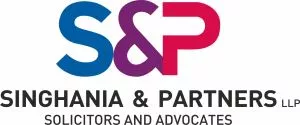WIPO- World IP Day 2021 and IP Initiatives of Singhania & Partners
The theme "IP & SMEs: Taking Your Ideas to Market" for World Intellectual Property Day- 2021 has been declared by World Intellectual Property Organization (WIPO). The aim is to encouraging innovation among SMEs with a focus on IP Protection, thus generating value for their businesses.
In order to take this derive further s Singhania & Partners LLP, initiated "Small Scale Zone-2021" and "Women Claim-2021" in the best interest of applicants/entities, particularly, small-scale businesses, start-ups, research institutes, universities and women innovators/applicant with regard to IP Services, in India.
PATENTS
IPAB Considers the Fine-Tuning of the Auto-Allotment Module at IPO1
The Intellectual Property Appellate Board ('IPAB') has referred back a patent application to the Patent Office for further prosecution and directed the Patent Office to provide fair hearing to the Appellant, LG Chem Ltd. The appeal was filed against the order of refusal of grant of patent as the objections related to inventive step were not been complied with by the Appellant.
The IPAB observed that the Controller General of Patents & Designs ('Controller') had clearly misdirected himself to rely on documents which must have been co-laterally filed but had later priority dates than that of the patent application of Appellant. It was held that the cited documents by no means, qualify for prior- publication and prior claiming.
It was also recommended that the Auto-Allotment module of the Patent Office should be implemented to ensure that cases having same applicant, same title, common inventors, similar but not identical subject matter, should be referred to the same Examiner and the Controller pair, for the purpose of improving the quality of examination and the grant of the Patents. Additionally the IPAB remanded the application back to the Controller and directed to provide fair hearing opportunity to the Appellant.
The IPAB Highlights the Prominence of Well-Reasoned Orders by the IPO2
The Intellectual Property Appellate Board ('IPAB') while referring back a patent application to the Patent Office for further prosecution observed that the impugned order only narrated the brief feature(s) of the cited prior arts and straightway concluded that since all the steps claimed in the patent application (for generating a waveform in a communication network) have been disclosed in the cited documents; therefore the steps can be implemented by a person skilled in the art to perform the invention claimed by appellant. The IPAB observed that such orders which are devoid of any reasoning may be a result of grading system of the Examiner/ Controllers based on their quantifiable performance which often ignore adequate quality management.
The IPAB was of the view that the Patent Office had failed to take the appropriate steps to appreciate the facts and did not rely on the principles of test of obviousness. Consequently, the IPAB set aside the order of the Patent Office, while categorically stating that the impugned order was passed without the consideration of the merits of the case.
IPAB Grants Patent for Treatment of Arthritis3
The IPAB allowed an appeal against the order passed by the Controller of Patents and Designs ('Controller'), refusing to grant Asthristis Relied Plus Ltd.'s ('Appellant') patent application concerning topical formulation including comfrey or comfrey derived compounds and tannic acid which is used for the treatment of arthritis. The Controller had originally rejected the patent application on grounds mentioned under Section 3(e) and Section 3(j) of the Patents Act, 1970 which pertain to admixtures having lack of synergistic effect and involvement of biological process, respectively. Additionally, the Controller also was of the view that the invention of the Appellant lacked inventive step in accordance with Section 2(1)(ja) of the Patents Act, 1970 as the separate compounds were already known to have such medicinal quality.
However, the Intellectual Property Appellate Board ('IPAB') held that the objection of lack of inventive step would not hold because the determination of inventive step is to be assessed based on the subjective statement of the Appellant. Secondly, with respect to the objection raised regarding synergistic effect of the admixtures, the IPAB held that, contrary to the view of the Controller, 'remarkable activity' is not a requirement of law and further observed that the data shows that G1 and G2 each provided a greater reduction in the Western Ontario and McMaster Universities Osteoarthritis Index (WOMAC) index of 59.88% and 75.42%, respectively, indicating a synergistic effect of the combination on joint stiffness. Lastly, the IPAB held that the objection under Section 3(j) of the Patents Act, 1970 does not hold because the invention is neither claiming plants and animals in whole or any part nor relating to seeds, varieties and species etc. but rather relates to a 'topical formulation'.
Resultantly, the IPAB requested the Appellant to define the proportions and percentage of comfrey-derived compound and its weightage, and accordingly directed the Controller to grant the patent application.
IPAB Grants Patent to Divisional Application of Dow Agrosciences4
Appellate Dow Agrosciences LLC ('Appellant') filed a patent application relating to transformation events of cotton plants comprising polynucleotide sequences inserted into specific sites within the genome of a cotton cell to protect plants from insects. More particularly the polynucleotide sequences encode stacked Cry1F and Cry1Ac lepidopteran insect inhibitory proteins. Owing to the lack of unity, the Appellant filed a Divisional Application for Cry1Ac insect inhibitory protein and Cry1F perused in the parent application.
The Patent Office refused two claims i.e. Claim 1 and Claim 2 of the Divisional Application due to lack of inventive step in purview of cited prior art documents. After giving due consideration to the technical submissions of the Appellant, the Intellectual Property Appellate Board ('IPAB') directed the Controller of Patents and Design ('Controller') to allow the refused claims and opined that the invention should show that producing and selecting elite events is a complicated process which involves many possible options, approaches, empirical judgment calls and data interpretation. Since the Cry1Ac event of the application was selected from a pool of many possible options it shows a superior feature over other events. Furthermore noting that Patent Application has been granted for similar invention related to Cry1F event by the Controller, the IPAB observed that therefore involvement of inventive step cannot be questioned in the present case. The IPAB deliberated that the corresponding applications claiming the subject matter has been granted in the various jurisdictions on considering the same prior art documents and accordingly directed the Controller to allow the patent.
DESIGN
Designs Rules Amended
The Government of India while exercising the powers conferred by Section 47 of the Designs Act, 2000, amended the Designs Rules 2001 through Designs (Amendment) Rules, 20215.
The major amendments introduced are as follows:
- Inclusion of the definition of startup;
- On transfer of rights or interest in the design, partly and fully, to an entity other that a natural person, startup, or small entity, from a natural person, startup or small entity, applicable difference in the official fee will required to be paid along with the necessary request for recordal of assignment. However such provision is not applicable in case the applicant ceases to be a startup or a small entity;
- The current edition of Locarno Classification will be followed;
- As per the revised First Schedule and Fourth Schedule, reduction in the applicable official fee for small entity has been observed;
- The official fee incurred by the applicants claiming small entity and startup status is akin to Natural Persons.
TRADEMARK
Delhi High Court passes an ex parte order in favour of Aktiebolaget Volvo6
Aktiebolaget Volvo & Ors ('Plaintiff'), an international automotive transport vehicle group had filed a suit against Vaishali Travels ('Defendant'), a bus operator, seeking permanent injunction against infringement, passing off, dilution and tarnishment of registered trademarks along with rendition of accounts, delivery up, transfer of domain name damages, costs etc. The Plaintiff was aggrieved by the misappropriation of their registered trademark "VOLVO" as a part of the Defendant's domain name, online trading name, email id and meta-tags on the source code of its website.
Noting the robust presence of the "VOLVO" mark and the Plaintiff's adoption of the same since 1915, the Delhi High Court ('Court') noted that the mark "VOLVO" has been considered as a well-known mark across multiple jurisdictions including India. Resultantly, the Court held that the balance of convenience is in favour of the Plaintiff who would suffer irreparable loss if the ex parte order is not passed in their favour. In view of the above, the Court restrained the Defendant and its affiliates to use the mark "VOLVO" in relation to their online booking of bus tickets, live tracking of buses, telephonic booking, third party listings in relation to any goods or services in any manner.
IPAB permits the rectification against a deceptively similar trademark7
Dotcom Retail Limited ('Applicant') had filed for the removal and cancellation of trademark "BEAUTYBAY" registered under Class 35 of RNA Intellectual Property Limited ('Respondent). The Applicant through its predecessor had adopted the trademark "BEAUTYBAY" and further acquired the domain name (beautybay.com) in 2002. The Applicant submitted that it has been using the mark globally since 2005 and in India since 2008. During the process of registration of the Applicant's trademark under Class 35, the Registrar of Trade Marks raised an objection under Section 11 of the Trademarks Act 1999, stating that the Applicant's mark stood obstructed by the Respondent's mark - "BEAUTYBAY" which was filed in August 2010 on a proposed to be used basis.
On perusal of the two marks and their usage, the Intellectual Property Appellate Board ('IPAB') observed that the Respondent had in fact, copied the key phonetic elements of the Applicant's mark in a manner that invoked no contrast phonetically or visually evidencing that the Respondent had deliberately and fraudulently adopted the mark "BEAUTYBAY" in order to establish a connection with the Applicant's goodwill and reputation while having full prior knowledge about Applicant's exclusive proprietorship over the "BEAUTYBAY" trademarks.
The IPAB further noted that the Respondent ought to have known of the existence of the trademark of the Applicant as it has been popularly known across the World since the year 2005 and resultantly directed the Registrar of Trademarks to delete the entry of the mark "BEAUTYBAY" under Class 35 as per the provisions of Section 47(1)(a) and (b) and Section 57 of the Trade Marks Act, 1999.
IPAB Permits Registration of the Trademark "THINK"8
The Intellectual Property Appellate Board ('IPAB') permitted the trademark application for the mark "Think" to proceed for registration under Class 16, 25, 35 and 41, reversing the refusal order of the Registrar of Trademarks. The IPAB noted that since 2011 the trademark has been genuinely, extensively and continuously used by Thinkworks Pvt Ltd ('Appellant') in relation to the events organised by the Appellant that would satisfy the need of the urban people and motivate the members to share and communicate ideas. The IPAB noted the Appellant's trademark "Think" had become distinctive in almost all the territories/countries. Notably, the Registrar had refused the registration of the trademark "Think" on the following grounds -
- the mark is a common surname/personal name/geographical name/ornamental or a non-distinctive geometrical figure;
- the mark is identical and similarly deceptive to earlier registered marks.
The IPAB observed that the above stated objections ought to be waived off on the ground that trademark of the Appellant has acquired a distinctive character and secondary meaning, and is associated only with the goods and services of the Appellant. As regards the objection concerning deceptive similarity, the Board noted that registered marks cited in the examination report are co-existing on the Register which would allow the Appellant's mark to co-exist as well.
In view of the above, the IPAB set aside the refusal order passed by the Registrar of Trademarks and allowed the mark "Think" to proceed on to the advertisement stage for the purpose of registration.
Delhi HC Restrains against Issuing of Fake GS1 India Bar Codes9
A suit for permanent injunction was filed by GS1 India
('Plaintiff') against Global Barcodes SL
('Defendant') for using, selling, offering for sale,
issuing and allocating 13-digit barcode numbers starting with
"890" which lead to confuse individuals as to the origin
and association with certification compliance prescribed under the
GS1 standard of the Plaintiff. The Plaintiff further contended that
the false allocation of barcodes by the Defendant is capable of
infringing the Plaintiff's trademark "![]() " registered under Class 35. Notably, the
Plaintiff is the only licensed body to allocate the code
"890" used for further allocation along with ten other
digits to individuals who want their products to be certified with
a barcode so as to ascertain the country of origin and also the
manufacturing, supplying units of the product. The Delhi High Court
('Court') observed that the Defendant's website offers
barcodes with "890" which do not originate from the
Plaintiff and hence causes deception to customers at large. The
Court in its final order observed that the Defendant continued its
illicit activities on a new website despite the interim injunction
ordered by the Court. Accordingly the Court held in favour of the
Plaintiff restraining the Defendant from illegally allocating
barcodes and further ordered a decree for damages of INR 2 million
payable by the Defendant.
" registered under Class 35. Notably, the
Plaintiff is the only licensed body to allocate the code
"890" used for further allocation along with ten other
digits to individuals who want their products to be certified with
a barcode so as to ascertain the country of origin and also the
manufacturing, supplying units of the product. The Delhi High Court
('Court') observed that the Defendant's website offers
barcodes with "890" which do not originate from the
Plaintiff and hence causes deception to customers at large. The
Court in its final order observed that the Defendant continued its
illicit activities on a new website despite the interim injunction
ordered by the Court. Accordingly the Court held in favour of the
Plaintiff restraining the Defendant from illegally allocating
barcodes and further ordered a decree for damages of INR 2 million
payable by the Defendant.
DOMAIN NAME DISPUTES
Nippon Life India Asset Management Limited Secures Domain Name against Unregistered Trademark10
The World Intellectual Property Organization (WIPO) Arbitration and Mediation Centre ('Panel') ordered the transfer of 7 disputed domain names to Nippon Life India Asset Management Limited ('Complainant') on being informed that an employee had refused to transfer the domain name back to the employer upon its resignation.
The Complainant underwent a corporate name change from Reliance Nippon Life Asset Management Limited to Nippon Life India Asset Management Limited on January 13, 2020. Subsequent to the name change the Complainant filed approximately 100 Indian trademark applications for several of its trademarks including "NIPPON INDIA" with the Indian Trademarks Registry and had further instructed its employee to register the disputed domain names so that the Complainant could migrate its services from its previous domain names. The employee had registered the disputed domain name under its personal email ID obstructing the Complainant's access to the same.
The Panel noted that the Complainant was the registered proprietor of the trademark containing its earlier corporate name, "RELIANCE NIPPON LIFE ASSET MANAGEMENT" but had common law rights in the Complainant's unregistered Trademarks namely "NIPPON INDIA" and "NIPPON INDIA MUTUAL FUND". Importantly, the Panel held that because the disputed domain names were registered before the Complainant acquired statutory rights does not by itself preclude the Panel's finding of identity or confusing similarity. Additionally, the intent of the policy stipulates that the goods and/or services for which the mark is registered, the filing/priority date, date of registration, and date of claimed first use, are not considered relevant while ascertaining deceptive similarity. Relying on previous findings of the Uniform Domain-Name Dispute-Resolution Policy (UDRP) the Panel held that former employees do not have any rights to or legitimate interests in the domain names incorporating the trademarks of their former employers. Further the Panel noted that bad faith was evident upon the infringers attempt to extort substantial amounts by means of blackmailing the Complainant. Accordingly, the Panel ordered that the disputed domain names be transferred to the Complainant.
COPYRIGHT
Delhi High Court Clarifies the Position of the Authors' Royalty Rights in Underlying Works11
The Indian Preforming Rights Society Ltd. and Ors ('IPRS'/ 'Plaintiff') contended that Entertainment Network (India) Ltd. ('Defendant'), commonly known as 'Radio Mirchi', had not entered into agreements with the Plaintiff to broadcast music in 3 additional cities which amounted to infringement of public performance rights of the Plaintiff. The Defendant claims that there cannot be a separate license agreement with the Plaintiff as the entire bundle of rights vests in the music companies and those rights are administered by Phonographic Performance Limited ('PPL'). The main issue raised was regarding applicability of Section 19(10) of the Copyrights Act, 1957, which was previously clarified by the Supreme Court as "assignment of copyright in the work to make sound recording which does not form part of any cinematograph film, shall not affect the right of the author of the work to claim an equal share of royalties or/and consideration payable for utilisation of such work in any form by the IPRS."
The Delhi High Court ('Court') stated that under the concept of harmonious interpretation, Section 19(10) of the Copyrights Act, 1957 has to be read as not affecting the right of the author of the underlying works in sound recording, to claim share in royalty payable for utilisation of such works though identically as in the sound recording but in any other form. The Court clarified that utilisation of the work as embodied in the sound recording does not entitle the owner of the copyright in such work to demand equal share of royalties and consideration payable for the sound recording. Hence, the Court held in the present case that:
- if the Defendant wishes to perform the sound recordings in public, a license from PPL is essential;
- in case the musical works are to be communicated or performed in the public, independently, through an artist, the licence of IPRS is essential;
- in case the Defendant wishes to hold an event involving performances or communication of works of both kinds to the public, the licence or authorisation of both, PPL and IPRS is essential.
Footnotes
1. LG Chem Ltd v. Controller General Of Patents & Designs & Ors
2. Wisig Networks Private Limited v. Controller General of Patents
3. Asthristis Relied Plus Ltd v. Controller of Patents and Designs
4. Dow Agrosciences LLC v. The Controller of Patents
5. Designs (Amendment) Rules, 2021
6. Aktiebolaget Volvo & Ors v. Vaishali Travels & Anr.
7. Dotcom Retail Limited v. RNA Intellectual Property Limited
8. Thinkworks Pvt. Ltd. v. Registrar of Trademarks
9. GS1 India v. Global Barcodes SL
11. Indian Performing Right Society Ltd. and Ors. v. Entertainment Network (India) Ltd
The content of this article is intended to provide a general guide to the subject matter. Specialist advice should be sought about your specific circumstances.



